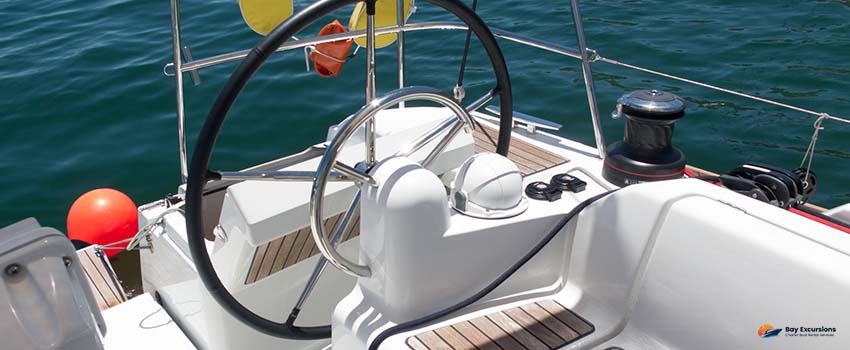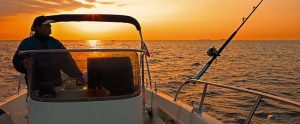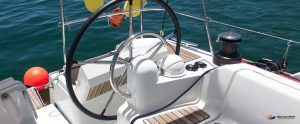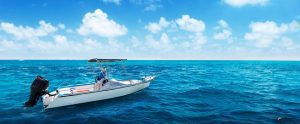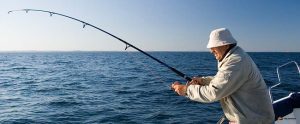Nothing is more enjoyable than spending the summer season on a boat with friends and family.
However, safety should be given the utmost importance, especially when it’s uncharted territory for everyone aboard. It’s worth taking the time to familiarize yourself with local regulations, boating safety rules, and good seamanship. This could make the difference between an unforgettable fun boating experience and a tragic one.
Accidents can be avoided if you take necessary precautions beforehand. Here are some viable boating safety tips that every boater should know:
1. Have a complete boat safety kit.
It is impossible to predict what will happen in an emergency, so you should be ready for it. You should always have a boat safety kit onboard, no matter how big or small your boat. Here are the essential items you should have in your boat safety equipment checklist:
Flashlight
You can use a flashlight and additional batteries to see around your boat at night. They also allow you to see if fuel is low or if your boat stalls.
Duct Tape
How to spring a leak? Use duct tape to close the hole temporarily.
Bucket
Water can still get in the boat, even if it isn’t leaking. You can bail it out with a bucket.
First Aid Kit
In case of an emergency or accident, a complete first aid kit and knowledge about using it are vital.
Whistle
A waterproof whistle is a must-have as it serves to signal for assistance on the water.
Ropes
These ropes are essential for pulling someone in if they have fallen overboard. They also secure your boat to the dock.
Garbage bags
you can use garbage bags as rain coats or added coverage for items in the boat.
Fire extinguisher
Being on the water does not mean that you cannot have an onboard fire. Every passenger should be able to locate and use their fire extinguisher.
Life jackets
Every person aboard a vessel should be wearing a U.S. Coast Guard approved-jacket. For more information about choosing the suitable life jackets, please read on.
2. Get the appropriate life jackets.
Life jackets are more than just a life-saving boat safety gear you can wear. Life jackets can be used to make an unconscious person float face up on the water’s surface and also prevent hypothermia. All boats must carry a life jacket for everyone aboard, especially children. An appropriate life jacket should be suitable for your height and weight. Moreover, here are some pieces of information you need to know when getting one:
- Before purchasing, try it on. Attach the vest to your body, and then have someone pull the top of your arm opening.
- Inflatable life vests, both manual and auto, can be used to turn the unconscious wearer upside down. However, they need to be maintained regularly.
There are many life jackets available on the market. Nevertheless, you should ensure that the jacket you purchase is suitable for you and your planned activity.
3. Make sure to check the weather forecast before boarding the boat.
Boating is best on sunny days. However, you cannot always predict when a storm might roll in. An approaching storm can be indicated by choppy water and wind gusts that vary. If your boat capsizes or you or your passengers are soaked, you should have a plan for getting help and drying off. So, wherever you plan to go boating, you should include this in your sea or lake boating tips.
4. Avoid overloading with people and gears.
Follow your boat’s maximum capacity. Your craft can be unbalanced if you overload it with passengers or gear.
5. Maintain safety precaution when fueling your boat.
After refueling your boat, check everything and smell for fumes. If you smell some fuel, do not start the engine if you haven’t detected where it’s coming from. This is one of the most important boating safety tips you shouldn’t disregard.
There can be a carbon monoxide build up within your boat which can possibly leave you and your guests unconscious. You should be aware of where fumes or gases can buildup, such as:
- Canvass enclosures not adequately ventilated
- Enclosed areas
- Blocked exhaust outlets
6. Use proper judgment in every situation.
The rules on the water are the same as those for the roads. Proper judgment and presence of mind are essential during emergencies, such as staying alert, operating at a safe pace, and ensuring passengers remain within the boat’s railings.
7. Use proper anchoring techniques.
It’s not enough to have the right anchor. To follow boating safety procedures, you must place two anchors in a V shape at the boat’s front to prevent the wind from dragging it. Additionally, you may want to drop your anchor in deeper water, around 20-30 feet, to prevent the tide from lifting it.
8. Be sure to follow the correct docking procedures.
Docking can be difficult depending on how strong the wind is, what current you have and your boat type. To prevent damage to your boat, slow down and secure the docking lines as you approach the dock. To compensate for wind gusts, you can approach the dock from a 20-30 degree angle. Secure the bow line.
9. Learn boating safety courses.
According to the U.S. Coast Guard, 70% of boating accidents occur due to operator error. Make sure you are familiar with the rules and responsibilities before leaving the dock. There are many online courses, some of which are free. The Boat U.S. Foundation offers an online course in boating safety that is free and tailored to each state.
10. Have your boat inspected.
Free Vessel Safety Inspections are offered by the U.S. Coast Guard Auxiliary and the United States Power Squadrons. They will check if it adheres to the boating safety requirements and if it has a full boat safety gear. If your boat fails to pass, there is no cost and no penalty.
Accidents can happen, but by observing boating safety precautions it can easily be averted.
Explore the beauty of the waters through Clearwater Beach Boat Tours. We offer the best charters and boat tours that can guarantee amenities that can provide boating safety and comfort for a hassle-free and unforgettable getaway for you and your family. Call us now!
